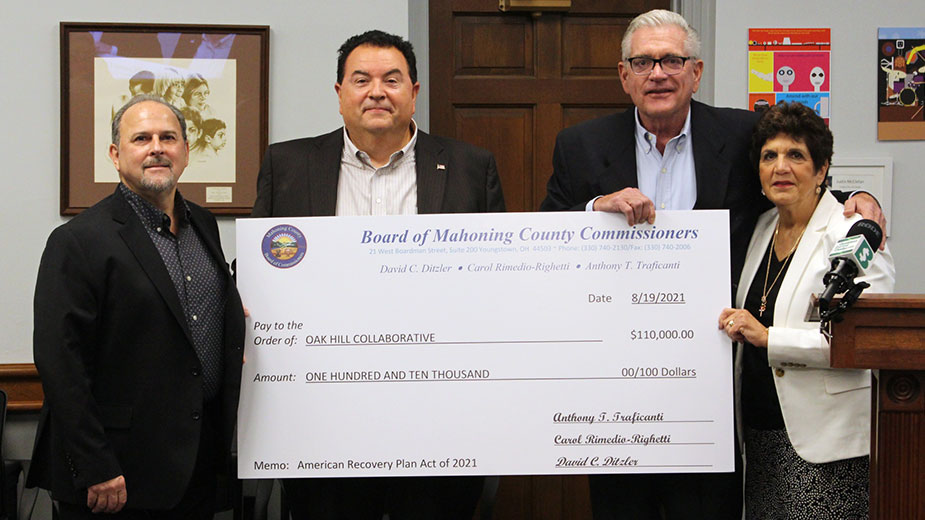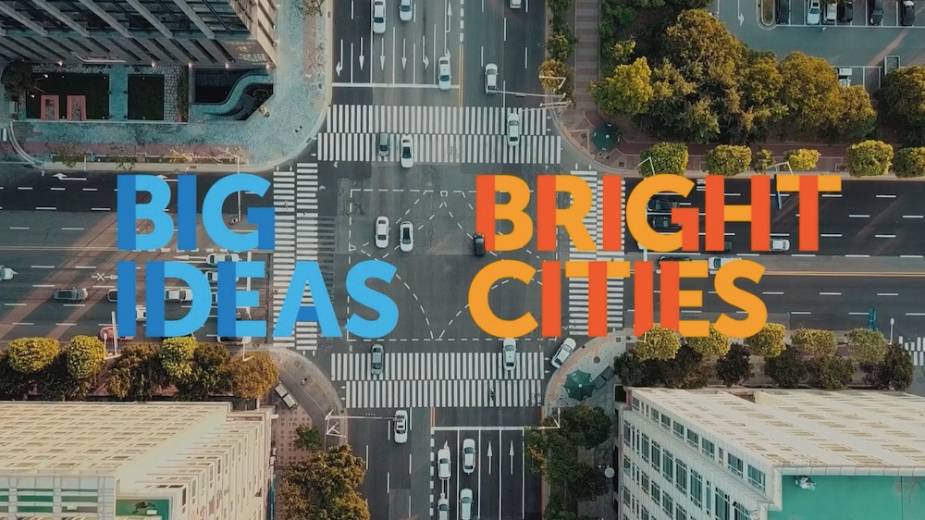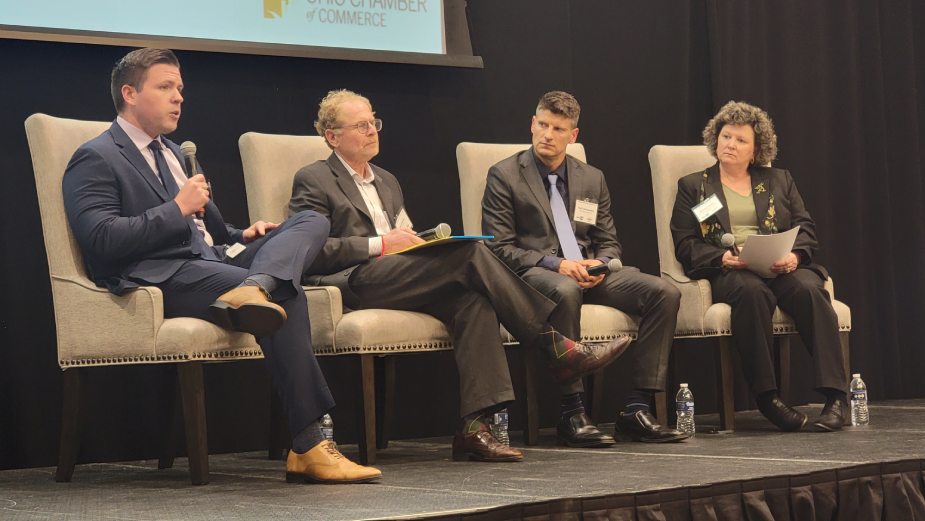$110,000 Check Bolsters Oak Hill Computer Literacy Programs
YOUNGSTOWN, Ohio — Oak Hill Collaborative has been dedicated to bridging the gap of computer literacy in the Youngstown area.
Thursday, the Mahoning County Commissioners presented a $110,000 check to Oak Hill Collaborative Executive Director Patrick Kerrigan during their regular board meeting inside the commissioners’ hearing room of the Mahoning County Courthouse. The funds are part of the $44 million the county received as part of the American Rescue Plan.
He says this money will be spread around to bolster the free services offered for children and adults over a two-year period.
“We’re a very lean operating machine and this helps quite a bit,” Kerrigan says. “The county wants us to invest in people, help teach these classes. We have a lot of the equipment that we’ve been able to accumulate.
“Now, we have to put that into effect.”
The $110,000 was an allowable expense under the ARP.
“Myself, personally, I’m not that literate on the internet,” says Mahoning County Commissioner Anthony T. Traficanti. “Maybe I’ll go up to the Oak Hill Collaborative and get a lesson? It really benefits the youth here in our community as well as the adults.
“We figured that was a good way to use a portion of that money.”
Kerrigan says children in suburban areas have anywhere from seven to 10 devices in their homes, along with schools keeping them well connected. Oak Hill offers a program called Raspberry Pi where elementary school students build computers, learn coding and keep their machines they built.
He says 98% of the people in Youngstown have access to high-speed internet – connecting to schools, telehealth, job interviews, government benefits and much more. Oak Hill’s mission is to make more people, especially those who are computer illiterate, aware about these opportunities on their phones or computers.
“That’s phenomenal, but they don’t use it,” Kerrigan says. “They don’t know how to use it.”
In addition to computer literacy, Oak Hill is addressing the underserved communities by getting the word out about the Emergency Broadband Benefit. The EBB provides a $50 monthly discount for broadband service or a one-time discount of up to $100 off for a laptop, desktop computer or tablet purchased through a participating provider if the household contributes $10-50 toward the purchase price. The qualifications for the temporary FCC program rolled out May 12 are listed HERE [https://www.fcc.gov/broadbandbenefit].
Steve Kristan, digital equity consultant for Oak Hill, says in an earlier conversation if this program ends in six months, that’s $300 in savings per person. According to the FCC statistics, there are 4,000 people at the end of June signed up in the 445 zip codes.
“It’s money on the table people are entitled to,” he says. “If they don’t use it, somebody else will.”
Kristan and Kerrigan help people navigate through the EBB process and promote the savings through radio, TV and billboard advertising. Oak Hill is there to help and has a few hundred people in person, helping them through the application process.
“We’re not going to give you the money,” Kerrigan said in an earlier interview. “We’re not going to give you the service. We’re going to navigate. We are digital navigators.”
For those needing help applying or have questions about the EBB program, call Oak Hill at 330 406 0271.
In addition to helping residents navigate the EBB program, Oak Hill refurbishes and resells devices in partnership with PCs for People, teaches adult technology classes and workshops as well as student-based classes in area schools, advises local government agencies and institutions on broadband, and serves as a digital inclusion advocate.
Among the classes taught at Oak Hill include those on Bible apps, telehealth, QuickBooks, Microsoft Excel and financial literacy – working in tandem with banks to benefit residents.
“If anything, the pandemic has shown us how there is such a great need to increase our digital awareness and increase our digital skills,” Kerrigan says.
This stems from a broadband feasibility study from Eastgate Council of Governments on a lake-to-river project spanning nearly 100 miles of high-speed fiber line.
“It is for the above reasons that we believe they will be an important partner to Eastgate on broadband,” says the study about Oak Hill.
The National Education Association reported on the digital divide in each state and provided recommendations on how to close it. The report says 25% of all school-aged children live in households without broadband access or a web-enabled computer or tablet. In rural areas, only 63% of students have access to both high-speed internet and the devices to use them. And Black students, regardless of where they live, are among the least likely to have full access, according to the study; just 63%, compared to 86% of Asian students and 80% of White students.
The EBB program will last throughout the pandemic, plus six months, Kerrigan says. However, he adds there are nationwide talks to make this permanent – offering the benefit for fewer dollars per month and increasing eligibility.
Pictured: On hand for the presentation were Mahoning County Commissioners David Ditzler and Anthony Traficanti, Oak Hill Executive Director Pat Kerrigan and Mahoning County Commissioner Carol Rimedio-Righetti.
Copyright 2024 The Business Journal, Youngstown, Ohio.



